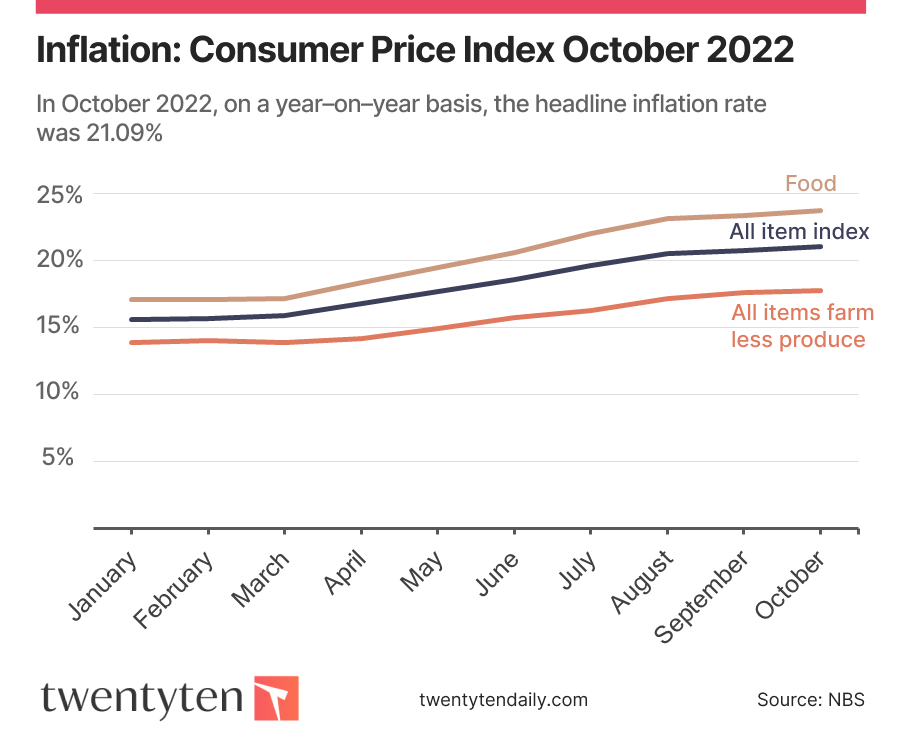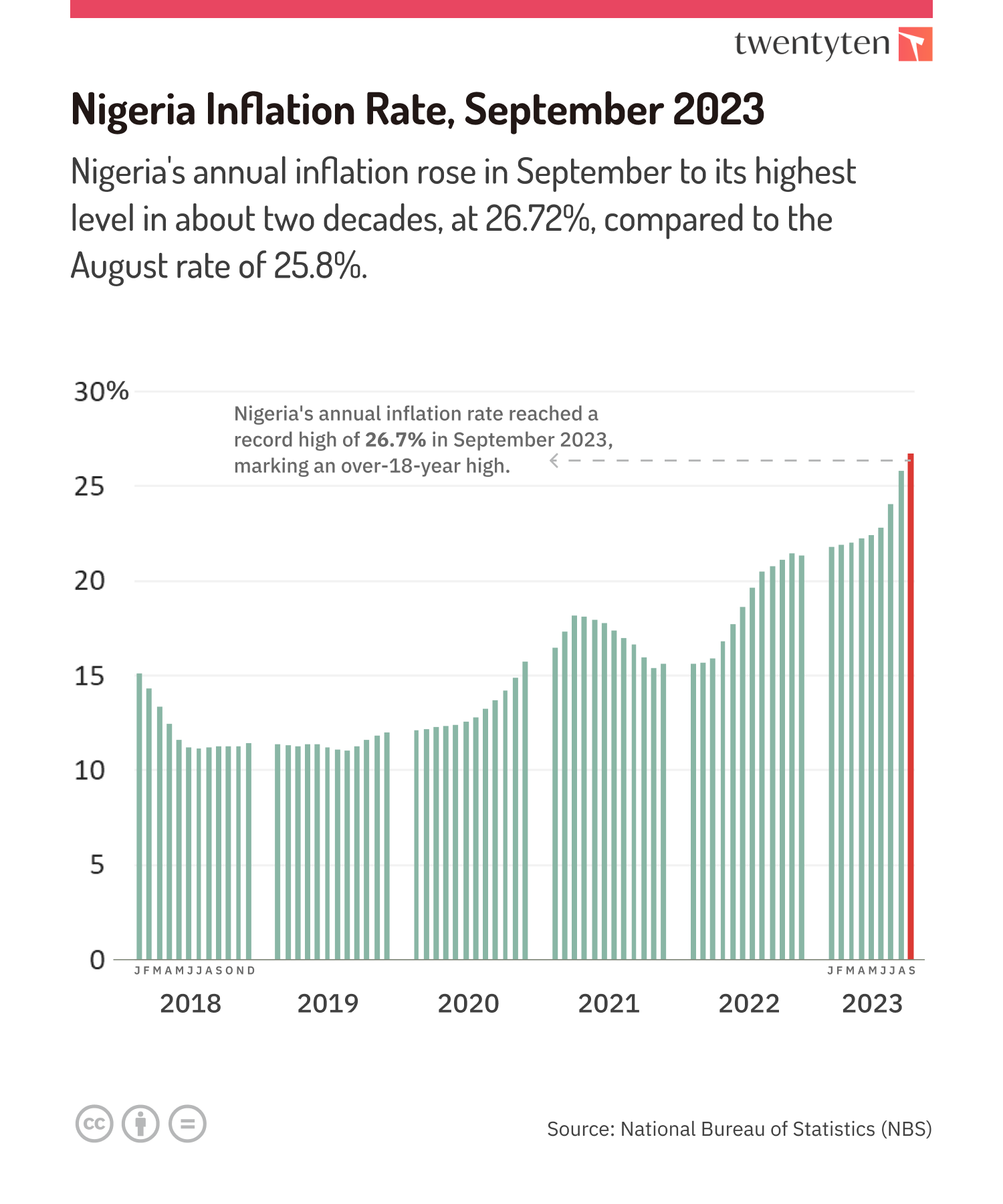Nigeria’s Inflation Hit 21.09% In October
According to the National Bureau of Statistics, Nigeria’s inflation rate has risen to a new record high of 21.09 per cent in October 2022.
The increase is not unconnected to the price of fuel, scarcity of foreign exchange, and disruption in the food supply chain.
This is 0.32 per cent higher than the 20.77 per cent reported in September. This means that the cost of living is rising rapidly in Africa’s most populous nation.
The NBS said, “Likely factors responsible for the increase in the annual inflation rate (year-on-year basis): disruption in the supply of food products; increase in the cost of importation due to the persistent currency depreciation; and a general increase in the cost of production e.g., increase in energy cost.”

Speaking in its, ‘Consumer Price Index October 2022’ report, the NBS said, “In October 2022, on a year–on–year basis, the headline inflation rate was 21.09 per cent. This was 5.09 per cent points higher compared to the rate recorded in October 2021, which was 15.99 per cent.
“This shows that the general price level for the headline inflation rate increased in October 2022 when compared to the same month in the preceding year (i.e., October 2021) by 5.09 per cent. On a month-on-month basis, the Headline inflation rate for October 2022 was 1.24 per cent, this was 0.11 per cent lower than the rate recorded in September 2022 (1.36 per cent). This means that in October 2022 the general price level for the headline inflation rate (month–on–month basis) declined by 0.11 per cent.”
According to the NBS, the urban inflation rate had risen to 21.63 per cent while rural inflation was now 20.57 per cent.
It further revealed that increases in the prices of bread, cereals, potatoes, yams, other tubers, oil and fat pushed food inflation to 23.72 per cent in October.
The nation’s statistics body said, “In October 2022, all items inflation rate on a year-on-year basis was highest in Kogi (25.15 per cent), Bauchi (23.45 per cent), Ondo (23.45 per cent), while Plateau (19.02 per cent), Borno (19.31 per cent) and Nasarawa (19.39 per cent) recorded the slowest rise in headline y-o-y.”
In October, fuel scarcity hit different parts of the nation, with filling stations selling petrol above the approved price of N180-N185/litre. This affected the price of transportation as public transport workers transferred this increase in cost to commuters.



